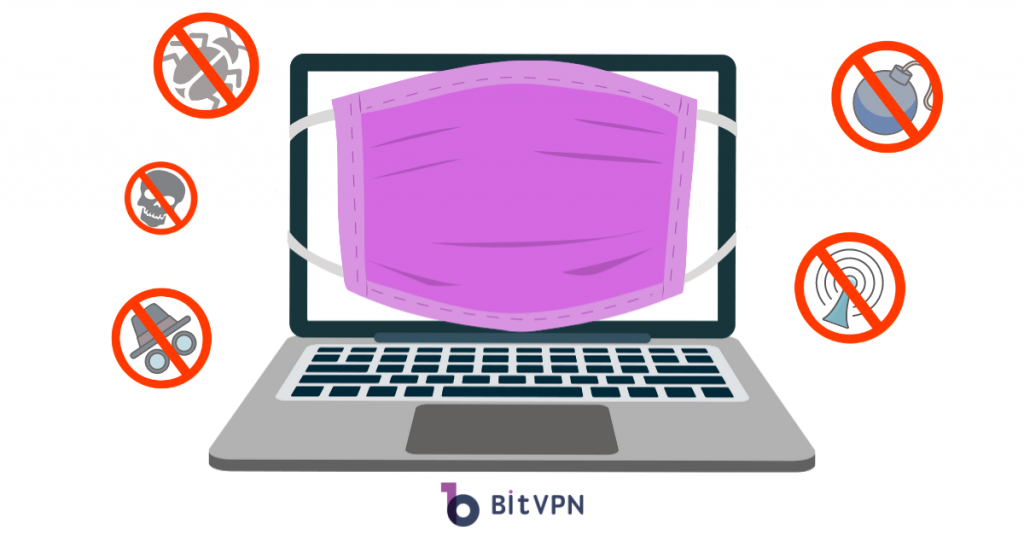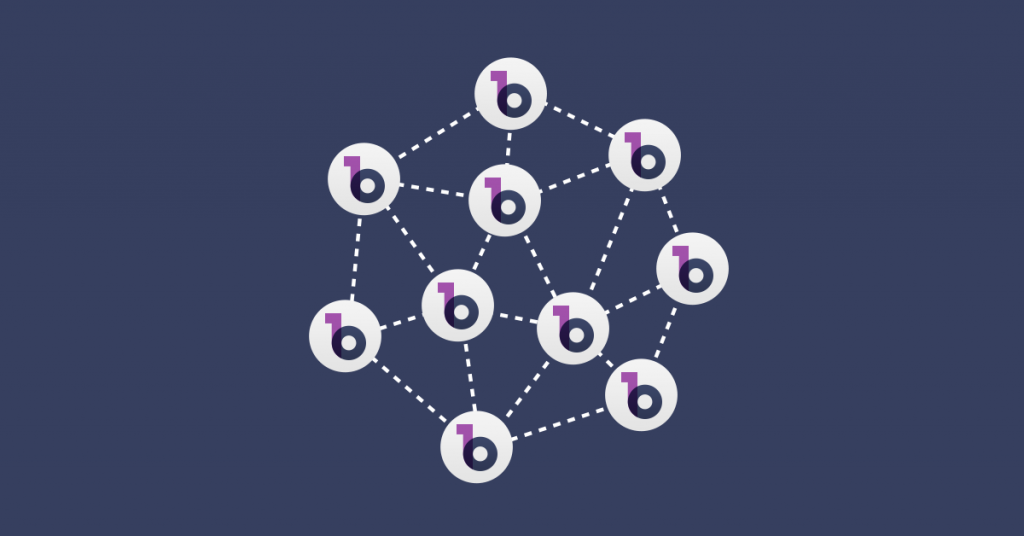A computer virus, commonly called malware (or malicious software), is a piece of software that’s been programmed to infect a specific device and alter the manner in which it operates.
Very frequently, viruses replicate themselves, spreading from computer to computer via the internet – much like a real-world virus spreads from person to person.
Some viruses require user action in order to get onto a device, and so they are spread through malicious attachments and links. Once clicked upon, they will infiltrate a computer’s defenses and wreak havoc.
But what’s the best way to get rid of a virus? How do you protect yourself from a virus? And can a VPN act as a piece of antivirus software? We’ll find out in this article.
How Do Viruses Spread?
To know how viruses are spread, let’s recall how the top 1 virus, COVID-19, is spread. Coronavirus is spread through short-distance contact.
Similarly, most online viruses spread throughout a network, such as an internet, by hiding on the other end of suspicious links in an email or on a website, or they are delivered to your computer as an email attachment.
Most of the time they lay dormant, awaiting activation via a user action – a simple unsuspecting click.
Once this happens, the virus will spread through your program files, deleting, altering, or copying data as it sees fit in order to change the way that your computer works. For example, it could duplicate itself hundreds of times, take over your email address, and send copies of itself to all of your contacts.

What Damage Can a Virus Do to My Computer?
- Log your keystrokes and report them to a third party.
- Collect login credentials and financial information.
- Spam contacts in your social accounts.
- Spread to other computers on a network.
- Corrupt normal files and system files.
- Give hackers remote access to your device.
What Are the Common Types of Viruses?
There are many different types of viruses, but here are a few of the most common to look out for.
Direct Action Viruses
These are an ancient but occasionally still popular virus that, while now unreliable, can run an executable file. Their weakness is being disabled as soon as the program is closed.
Polymorphic Viruses
These are highly dangerous and difficult to detect: they masquerade as antivirus software, encrypting their own coding to remain invisible.
Browser Hijackers
These, as the name implies, take control of your web browser and redirect you to malicious spam websites every time you type in a web address. Antivirus software easily gets rid of them.
Web Script Viruses
These hide on websites within the coding for images and hyperlinks. When you click them, they’ll be downloaded and will harm your CPU. Most of the time, though, they just get your device to perform labor-intense data mining operations that earn the hackers money.
Does a VPN Protect Against Viruses?
To be clear, the most effective method of detecting and eliminating a virus is to use antivirus software. However, these antivirus programs are just a small part of the defenses that you should have in place in order to counter the risk of viruses and malware.
The cornerstone of any cybersecurity system is a good VPN, which will prevent the risks of a virus in the first place by making you totally invisible online. After all, it’s better to be immune to a virus than to heal it. It also encrypts all of your data and sends it through a private tunnel, making it much harder to be intercepted. And many VPN providers have inbuilt antivirus software.
So while a VPN certainly won’t hunt malicious software that’s already on your system, it will mean you are practically impossible to hack in the first place unless you make an error as a user (such as clicking on a malicious link in an email).
A VPN like BitVPN, which is a decentralized P2P VPN based on military-grade encryption protocols, will not only boost your privacy by making you invisible online and improve your connection speed by giving you better routing, it will improve your security by:
- Hiding or masking your IP address, making you untraceable online.
- Encrypting your communication, both incoming and outgoing.
- Providing you with millions of nodes through its decentralized network.
- Preventing single-instance attacks thanks to its mesh network.
- Cutting off the user from existing malware.
Combine a VPN and Antivirus for the Best Protection
Remember, however, that a VPN does not provide direct antivirus software, and you must still be very careful when opening email attachments and downloads. Never open .exe files from strangers, or .jar or .js either. These are notorious for containing viruses.
So, you should still run antivirus. But to take your security and privacy to the top level, combine it with BitVPN.
Thanks to BitVPN’s decentralized data structure, you can surf, unblock, and stream any content anonymously wherever you are. We are the world’s first and only decentralized VPN run on ultra-secure blockchain technology (the same technology that the US Federal Reserve Bank is using for protecting its holdings).
Our service is totally customer-oriented. We have kept over a million users safe and continue to do so every day with a 99% satisfaction rating. And, thanks to our decentralized network, our VPN is completely no-log, meaning that we keep no details whatsoever about our users. This gives them a complete sense of mind that, no matter what they do online, they will be protected and anonymous.

The Benefits of BitVPN
- Distributed. That means no centralized servers are vulnerable to hacking, so no entity can gather your complete data output.
- Log-proof. As mentioned, decentralization means that it is inherently impossible for us to log your keystrokes or personal information.
- Secure. Our data scrambling protocols are military-grade, requiring multiple keys to unlock and utilizing a state-of-the-art ciphertext.
- Unstoppable. Thanks to the millions of nodes on our network, BitVPN runs forever and is impervious to attack.
- Digital Privacy Safeguard. Our safeguarding measures mean you stay connected even when you’re connecting via a traditionally unsafe port, such as public WiFi.
- Peer-to-Peer Mesh Network. Our decentralized community is powered by individuals like you. That means all data, scrambled, is distributed among users.
So what are you waiting for? Enhance your antivirus software today with BitVPN, the ultimate in VPN security.
- How to Tell if Someone is Spying on My Phone and How to Stop That
- Ask Your Employees These Questions to Easily Test Their Cybersecurity Awareness
- What’s Computer Hacking and How to Prevent It
- What is Ransomware? Everything You Should Know About Top 1 Possible Cyberattack in 2021
- Affected by Facebook Leak? How to Stay More Private on Social Media